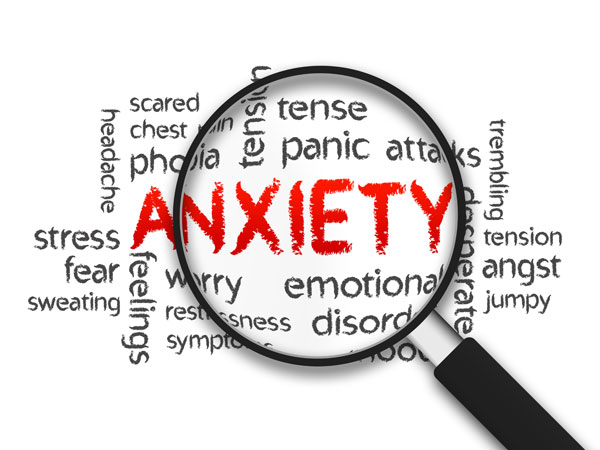
In the fast-paced world we live in, it’s not uncommon to feel overwhelmed by the demands of daily life. From work deadlines to family obligations, financial worries to health concerns, the list of stressors seems endless. Add to that the prevalence of treatment anxiety disorders, and it’s clear that finding balance in our lives is more important than ever. Coping with anxiety and stress requires a multifaceted approach that addresses both the mind and body. In this guide, we’ll explore effective strategies for managing anxiety and stress, so you can find greater peace and balance in your life.
Understanding Anxiety and Stress
Before diving into coping strategies, it’s essential to understand the nature of anxiety and stress. Anxiety is a natural response to perceived threats or danger, triggering a physiological “fight or flight” response in the body. While occasional anxiety is normal and can even be beneficial in certain situations, chronic anxiety can have a debilitating impact on one’s life.
Similarly, stress is the body’s response to pressure or demands placed on it. While some level of stress is inevitable and can motivate us to take action, excessive or prolonged stress can lead to physical, emotional, and mental health problems.
Identify Triggers
The first step in coping with anxiety and stress is to identify the triggers that contribute to your feelings of unease. These triggers can vary widely from person to person and may include work deadlines, relationship conflicts, financial worries, health concerns, or even environmental factors like noise or crowded spaces. Keeping a journal can be a helpful tool for tracking your triggers and gaining insight into patterns and trends.
Once you’ve identified your triggers, you can begin to develop strategies for managing them more effectively. This might involve setting boundaries, practicing time management techniques, seeking support from loved ones, or making lifestyle changes to reduce stressors.
Practice Mindfulness
Mindfulness is a powerful practice for reducing anxiety and stress by bringing your attention to the present moment. By focusing on your breath, bodily sensations, or the sights and sounds around you, you can cultivate a sense of calm and detachment from anxious thoughts and worries.
Mindfulness can take many forms, including meditation, deep breathing exercises, yoga, or simply taking a few moments to pause and notice your surroundings. The key is to practice regularly and incorporate mindfulness into your daily routine, so it becomes a habit.
Exercise Regularly
Exercise is not only beneficial for physical health but also for mental and emotional well-being. Physical activity releases endorphins, chemicals in the brain that act as natural painkillers and mood elevators. Regular exercise can help reduce symptoms of anxiety and depression, improve sleep quality, and boost self-esteem.
Find an exercise routine that you enjoy and can stick with, whether it’s walking, jogging, cycling, swimming, or dancing. Aim for at least 30 minutes of moderate-intensity exercise most days of the week, but remember that even short bursts of activity can provide immediate stress relief.
Prioritize Self-Care
Self-care is often neglected in our busy lives, but it’s essential for maintaining balance and resilience in the face of stress and anxiety. Self-care activities can vary widely depending on your interests and preferences but may include things like getting enough sleep, eating a balanced diet, spending time in nature, engaging in hobbies, or connecting with friends and family.
Make self-care a priority by scheduling time for it in your daily or weekly routine. Set boundaries around your time and energy, and don’t be afraid to say no to things that drain you or cause unnecessary stress.
Seek Professional Help
If anxiety and stress are significantly impacting your daily life and functioning, don’t hesitate to seek professional help. A mental health professional, such as a therapist or counselor, can provide you with the tools and support you need to manage your symptoms effectively.
Therapy techniques such as cognitive-behavioral therapy (CBT), mindfulness-based stress reduction (MBSR), or relaxation techniques can be particularly helpful for coping with anxiety and stress. In some cases, medication may also be prescribed to alleviate symptoms.
Connect with Others
Social support is a crucial factor in coping with anxiety and stress. Sharing your thoughts and feelings with trusted friends, family members, or support groups can provide validation, perspective, and emotional support. Even just spending time with loved ones and engaging in enjoyable activities together can help reduce feelings of loneliness and isolation.
If you’re struggling to connect with others in person, consider joining online communities or support groups where you can interact with people who share similar experiences and challenges.
Practice Gratitude
Practicing gratitude can be a powerful antidote to management anxiety and stress by shifting your focus from what’s wrong to what’s right in your life. Take a few moments each day to reflect on the things you’re thankful for, whether it’s a supportive friend, a beautiful sunset, or a small accomplishment.
Keep a gratitude journal or make it a habit to express gratitude out loud to yourself or others. Cultivating an attitude of gratitude can help foster resilience, optimism, and a greater sense of well-being, even in the face of adversity.
Finding balance in today’s hectic world is no easy feat, but it’s essential for maintaining your mental, emotional, and physical health. By implementing these tips for coping with anxiety and stress, you can cultivate greater resilience, peace, and joy in your life. Remember that finding balance is an ongoing process, so be patient and kind to yourself as you navigate the ups and downs of life.
